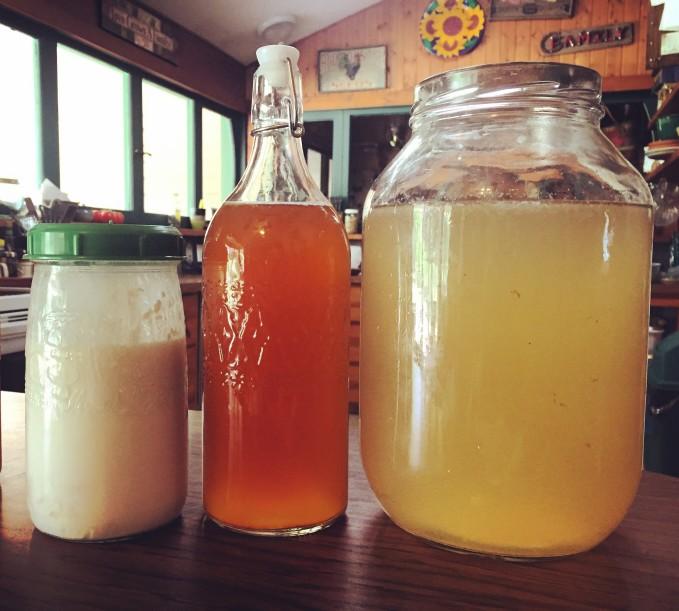Most of us tend to think that bacteria are dangerous and bad for us., However, this isn’t the case. There are many types of bacteria that are beneficial for our bodies. These live micro-organisms are called probiotics, or friendly bacteria, and can help to make your body healthier.
There are different types of probiotics that offer different benefits for your health and well-being. They work in the GI tract to boost the immune system, preventing dangerous bacteria from becoming attached to the inside wall of the intestines while improving the function and balance of the intestinal lining’s natural microflora.
Usually, the human body has an optimal balance of bacteria, however there are certain lifestyles or medical factors which can create imbalances. As a result, the disease-causing bacteria numbers can grow exponentially. Unnecessary use of antibiotics, gastrointestinal problems, surgery, taking PPIs, chronic stress, sensitivity to gluten and even the standard American diet can cause such imbalances.
Luckily, there are ways to redress the balance of bacteria for better overall health and well-being. The best way is to include probiotics in your daily diet.
What Exactly Are Probiotics?
Probiotics is a term used to describe the live bacteria which are present in fermented foods and yogurt. They can benefit your digestive system by bringing the balance of the bad and good bacteria in your microbiome in alignment. This ensures you have a lower risk of suffering from many different medical conditions and diseases.
Probiotics can be derived from natural food sources such as kefir and yogurt, but they can also be derived from foods which have been enriched with probiotics as well as from specialist supplements. It’s usually best to get your probiotics from natural food sources, however.
Probiotics take many forms and can be found in the following foods:
Unpasteurized kimchi and sauerkraut
Miso soup
Enriched milk and soft cheese
Sour pickles in saltwater
Sourdough bread
Here are some of the most beneficial probiotic foods that you can enjoy every day:
Yogurt – this is a top probiotic source since it contains milk which has been fermented by good bacteria such as bifidobacterial and lactic acid bacteria.
Not only can yogurt boost your bone health it can reduce high blood pressure and relieve unwanted symptoms associated with IBS (irritable bowel syndrome). Not every type of yogurt contains probiotics, so you need to only choose yogurts with live or active cultures.
Kefir – this probiotic fermented milk drink is made from goat or cow’s milk with added kefir grains. Again, kefir can strengthen the bones, help with digestive issues and protect the body from infections.
Sauerkraut – this is made from shredded cabbage which has been fermented with lactic acid bacteria. Not only is sauerkraut packed with fiber and vitamins; it also contains manganese, iron and sodium as well as antioxidants which boost eye health. You need to make sure that the sauerkraut you’ve chosen is unpasteurized to experience its probiotic benefits.
Tempeh – this product is made from fermented soybeans and is popular as a substitute for meat. The fermentation process means that you can absorb more minerals from tempeh. It is also a rich source of vitamin B12 while also offering probiotic benefits.
Kimchi – this spicy, fermented Korean dish is usually made from cabbage which has been flavored with chili pepper, ginger, garlic, salt and scallions. It also contains Lactobacillus kimchi which benefits your digestive health.
Miso – this Japanese seasoning is made from fermented soybeans. Usually made into soup, miso is an excellent source of fiber and protein and is packed with plant compounds, minerals and vitamins.
Kombucha – this fermented green or black tea drink originates from Asia.
Pickles – gherkins are fermented in salt and are an excellent source of probiotic bacteria which boosts digestive health.
Buttermilk – traditional buttermilk is the liquid that is left behind after making butter. It contains probiotics as well as valuable minerals and vitamins.
Natto – this fermented soybean product is like miso and tempeh which contains Bacillus subtilis. It is also high in vitamin K2 and protein.
Some cheeses – although many kinds of cheese are fermented, they don’t all contain probiotics. Only those that have active and live cultures do. Cottage cheese, cheddar, mozzarella and gouda are all good examples of cheeses in which the good bacteria survive the process of aging.
There are many probiotic foods which you can add to your diet, however, if you dislike all of them, you could always try a probiotic supplement which can be taken daily to improve your overall health and well-being.


